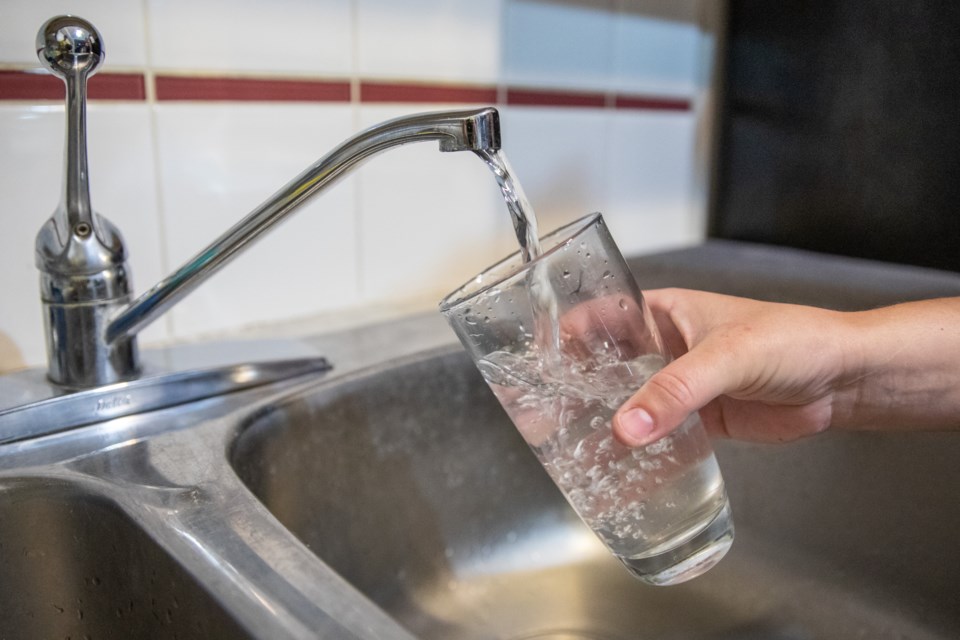Hinton residents are hoping the municipality will phase in proposed utility rate increases to give them more time to adjust, according to a Town survey.
On Tuesday (Oct. 22), in response to the survey, council’s committee of the whole reached a consensus to direct administration to draft water and sewer bylaws with provisions to phase in new utility rates.
“I appreciate administration listening to residents and their needs and doing a phased-in approach,” said Coun. Trevor Haas. “I think it’s reasonable. I think it’s taking a bit of a load off of our citizens in the short term, but it’s also putting away money for the inevitable capital projects that are coming forward.”
According to the Town, the new utility rates would cover increasing water and sewer costs and fund a new water treatment plant. This is partially due to the transition of water treatment services from the pulp mill to the town but also because of the aging infrastructure that needs replacing.
While council has not yet set the price of the new utility rates, the final utility bills are estimated to eventually be about $150 per month. The current charges are $153.29 every two months for water, sewer and garbage.
The month-long survey had 846 submissions with 710 respondents completing the survey.
Many respondents were concerned about their ability to pay their bills and the negative effects of inflation. They also questioned the need to double the cost of utility bills with many respondents saying the Town should cover the increase.
In addition, over 86 per cent of respondents indicated they would like fees increased over a longer period.
As part of updating the utility rates, council will have to decide if residential water meters are voluntary or mandatory, and if the $100 installation cost will be borne by the Town or the ratepayer.
Almost 60 per cent of respondents were opposed to adding a flat fee cost of a water meter to utility bills. Over 55 per cent felt that residential developments should not be required to have water meters installed.
Phasing in utility rates
For multi-residential buildings, each unit would initially be charged a flat rate of $65 per month for water and $22.50 per month for sewer as part of the phased-in approach. The new rates would be implemented one month after meters are installed for all multi-residential buildings.
According to Town administration, if the building is well maintained, units could see a decrease in utility bills when flat rates are later switched to metered billing, which is estimated to occur in July 2025.
Single-family residential homes would be charged a flat rate of $65 per month for water and $22.50 per month for sewer. Metered billing would likely come into effect March 2026 once all meters are installed.
“Through the consultation, we also heard that we shouldn't have some parts of the town on flat and some parts on metered,” said Trent McLaughlin, director of development and infrastructure services. “We should flip everybody overall at the same time after everybody has their meters.”
The temporary flat rate would roughly result in a $25 increase per month for both residential homes and multi-residential buildings. When metered billing comes into effect, the utility bill will be about double the original at $150 per month for a residential home.
While commercial and industrial properties already have water meters, the Town would remove these existing meters and install new ones to avoid the complications of operating two different meter systems. These properties would move to the new rate system starting January.
Coun. Stuart Taylor wanted to remove the impact of raising funds for underground infrastructure repairs until a detailed plan with a condition assessment of the underground pipes exists.
“We’re raising significant funds for a project without, really, a detailed plan,” Taylor said. “All we have for a plan for the underground pipes is just a listing of how many kilometres of pipe and the age of the pipes. We don’t have a listing of the condition of the underground pipes.”
He estimated it could knock off $20 to $30 per month for ratepayers.
CAO Jordan Panasiuk explained that all the underground pipes would likely require servicing over the next 20 years and the Town had already delayed for too long when it comes to raising funds.
“My recommendation is that we move forward with the information we have because the Town of Hinton has good information to base a decision on,” Panasiuk said.
Taylor’s motion was ultimately defeated. Couns. Albert Ostashek and Haas both spoke against it.
“I think it’s important that we start collecting funds to help pay for the infrastructure replacement that we all know is coming,” Ostashek said.
Mayor Nicholas Nissen said they already knew the water system “leaks like crazy” and needed repairs.
“I know that when we get to metered water in our community, we’re going to have lots of data and information to find out where those leaks are,” Nissen said. “We’re going to start sealing up that system, and if we don’t start putting away the money to do that capital work, we won’t be able to do it in time.”
Council is expected to finalize the new utility rates at a future meeting.
Mobile home parks
As for mobile home parks, Town administration spoke to some owners who felt strongly that the Town should install individual water meters at each mobile home inside the parks.
Administration noted that having only one metre per park would be simpler, but there would be no way to tell which mobile homes had leaks or used more water, and there would be no incentive for them to conserve water.
Committee reached consensus to direct administration to draft water and sewer bylaws with provisions for one water meter installed on each mobile home park water line, plus water meters installed at individual mobile homes within mobile home parks.




